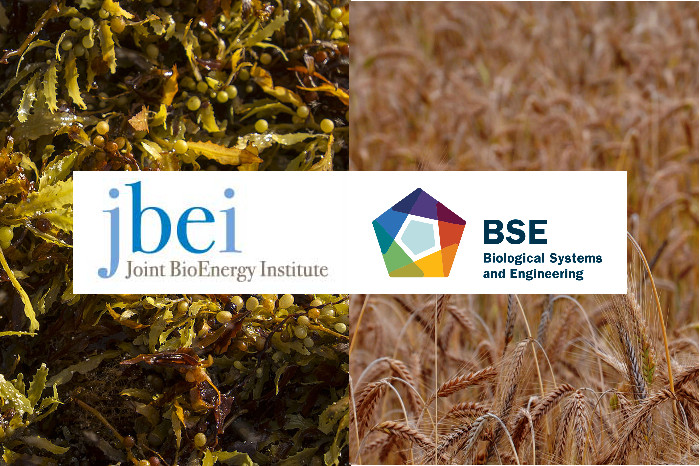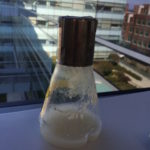 A new study led by researchers at the Department of Energy’s Joint BioEnergy Institute (JBEI), based at Lawrence Berkeley National Laboratory (Berkeley Lab), demonstrates the importance of microbial communities as a source of stable enzymes that could be used to convert plants to biofuels. The study, recently published in the journal Nature Microbiology, reports on the discovery of new types of cellulases, enzymes that help break down plants into ingredients that can be used to make biofuels and bioproducts. The cellulases were cultured from a microbiome. Using a microbial community veers from the approach typically taken of using isolated organisms to obtain enzymes. Read more in the Berkeley Lab’s News Center.
A new study led by researchers at the Department of Energy’s Joint BioEnergy Institute (JBEI), based at Lawrence Berkeley National Laboratory (Berkeley Lab), demonstrates the importance of microbial communities as a source of stable enzymes that could be used to convert plants to biofuels. The study, recently published in the journal Nature Microbiology, reports on the discovery of new types of cellulases, enzymes that help break down plants into ingredients that can be used to make biofuels and bioproducts. The cellulases were cultured from a microbiome. Using a microbial community veers from the approach typically taken of using isolated organisms to obtain enzymes. Read more in the Berkeley Lab’s News Center.
Two Advanced Energy Proposals Go Forward
The Energy Biosciences Institute (EBI) has announced that they will be supporting two proposals submitted by Jay Keasling, Chief Science and Technology Officer for Biosciences, and Steven Singer, Staff Scientist in the Biological Systems and Engineering Division. In partnership with EBI, Shell will fund the 6-month pilot projects, “Hosts and pathways for conversion of H2/CO2 to fuels and chemicals” (Keasling) and “Synthetic biology, bioreactor and recovery process design for biological methane conversion” (Singer). The proposals focus on the Dense Energy Carriers and Methane to Products thematic areas, respectively.
JBEI/BSE Paper Among PLOS ONE Top 10% Most Cited Articles
 A paper by Joint BioEnergy Institute (JBEI) and Biological Systems and Engineering (BSE) researchers has been ranked among the top 10% most cited PLOS ONE articles. “A Thermophilic Ionic liquid-tolerant Cellulase Cocktail for the Production of Cellulosic Biofuels” published in 2012 has already been viewed 8,871 times and cited 50 times as of today. The paper reports the development of an Ionic Liquid-tolerant cellulase cocktail by combining thermophilic bacterial glycoside hydrolases produced by a mixed consortia with recombinant glycoside hydrolases.
A paper by Joint BioEnergy Institute (JBEI) and Biological Systems and Engineering (BSE) researchers has been ranked among the top 10% most cited PLOS ONE articles. “A Thermophilic Ionic liquid-tolerant Cellulase Cocktail for the Production of Cellulosic Biofuels” published in 2012 has already been viewed 8,871 times and cited 50 times as of today. The paper reports the development of an Ionic Liquid-tolerant cellulase cocktail by combining thermophilic bacterial glycoside hydrolases produced by a mixed consortia with recombinant glycoside hydrolases.
Biosciences Area FY17 LDRD Projects
The projects of 13 Biosciences Area scientists and engineers received funding through the FY17 Laboratory Directed Research and Development (LDRD) program. The funded projects cover a broad range of topics including the study of microbiomes in relation to their environment, plants, and gut health; catalysis for solar conversion to energy; and genomic expression in tissue. Among them were three projects related to Lab-wide initiatives. Together, these efforts account for 17.5% of the $25.2 million allocated. Lab-wide, a total of 88 projects were selected from a field of 166 proposals.
Microbes-to-Biomes (M2B) Initiative Launches
The Labwide initiative, Microbes-to-Biomes (M2B), has kicked off with five projects funded through the Laboratory Directed Research and Development (LDRD) program, and a new website to chronicle news and advancements in M2B’s research mission. The M2B initiative is designed to explore and reveal the interactions of microbes with one another and with their environment – interactions that are vital to the Earth’s future.
Was this page useful?







